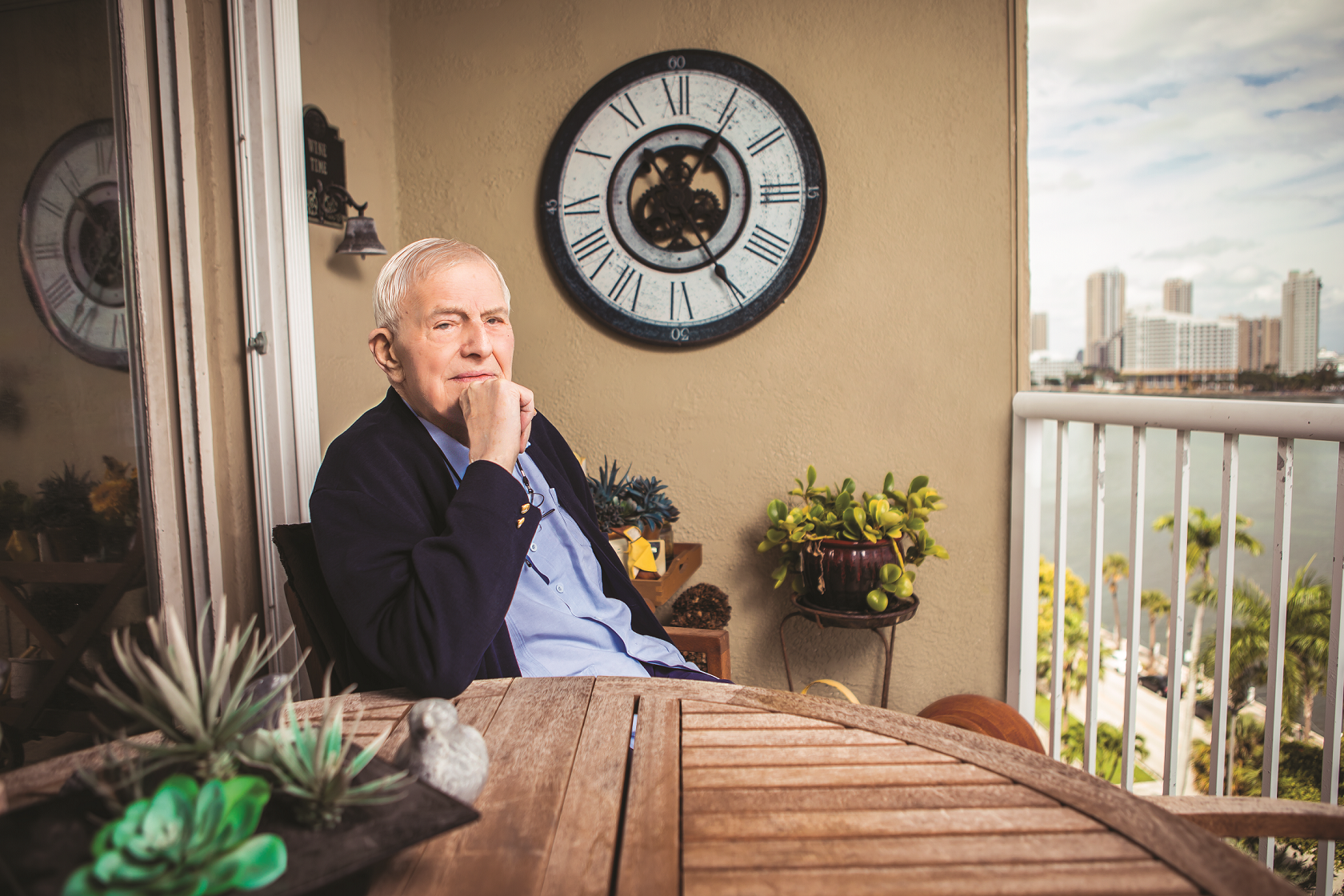A Legend Departs
Bill Whelan retires after 42 years at the Miller School
By Richard Westlund

Bill Whelan relaxing at home on his balcony.
R enowned scientist William J. Whelan, Ph.D., D.Sc., FRS, retired last fall after one of the longest careers in Miller School history. Dr. Whelan was honored at a gathering of more than 60 faculty, friends and family members on November 14 at the Biltmore Hotel, sponsored by the Department of Biochemistry and Molecular Biology, to celebrate his contributions and his 95th birthday.
A native of England, Dr. Whelan began his academic career at the University of Birmingham, the University of North Wales and the University of London. He is known in scientific circles for his discovery of glycogenin — the “missing link” in the molecular pathway that turns the body’s stored glucose into glycogen, the fuel for muscle cells. Dr. Whelan began studying glycogen synthesis in 1950, but it took him another three decades to overcome scientific skepticism and lost funding to make his game-changing discovery.
Dr. Whelan joined the University of Miami faculty in 1967, becoming the medical school’s second chair of biochemistry, a position he held until 1991. “Our department had three faculty members, two graduate students and a secretary,” he recalled at the Biltmore event. Realizing that Miami was “not on the map” for scientists, he soon launched the Miami Winter Symposium, which became an annual event that attracted Nobel Prize winners and other noted researchers from around the world.
Tufts University biochemist Angelo Azzi, M.D., Ph.D., recalled meeting Dr. Whelan at the first Miami Winter Symposium in 1968. “I remember one of the speakers telling me, ‘If you don’t run any risks, you don’t go anywhere,’” Dr. Azzi said. “Throughout his life, Bill has been a risk-taker, both personally and professionally, and as a result he has had a tremendous impact on many lives.”
“Throughout his life, Bill has been a risk-taker, both personally and professionally, and as a result he has had a tremendous impact on many lives.”
— Tufts University biochemist Angelo Azzi, M.D., Ph.D.


